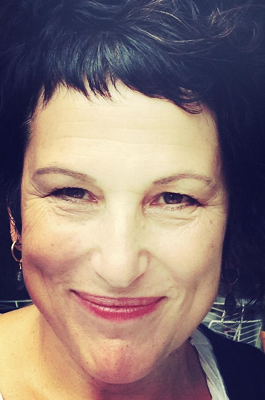NYPSI’s 1028th Scientific Program Meeting: The Elusive Good Object with presenter Lynne Zeavin, Psy.D. and discussant Richard Zimmer, M.D.
 The Elusive Good Object Presenter: Lynne Zeavin, Psy.D. Discussant: Richard Zimmer, M.D.
The Elusive Good Object Presenter: Lynne Zeavin, Psy.D. Discussant: Richard Zimmer, M.D.
Tuesday, April 10, 2018 at 8 pm New York Psychoanalytic Society & Institute 247 East 82nd Street, NYC (btwn 2nd and 3rd Aves)
There are two distinct ways in which Melanie Klein writes about idealization. Insofar as she maintains that “The whole of [the infant’s] instinctual desires and his unconscious phantasies imbue the breast with qualities going far beyond the actual nourishment it affords,” and her increasingly stressed conviction that the libidinally invested breast, when introjected, forms ‘the core of the ego’, Klein is suggesting that the original good object must be experienced as ideal. Nothing less than this would adequately address ‘the whole of [the infant’s] instinctual desires.’ In this view, the infant projects his entire loving capacity, as well as his capacity for pleasure, onto the object and this is then introjected, together with the object’s actual goodness, to become his very core.
At other moments, though, idealization is different, for Klein also asserted that much of what the infant experiences as positive is in fact due to idealization as a psychological defense: In this view idealization is seen as the result of a defensive exaggeration of the object’s goodness: “Idealization is bound up with the splitting of the object, for the good aspects of the breast are exaggerated as a safeguard against the fear of the persecuting breast”; that is, a defense against persecutory anxieties stemming from the infant’s projection of hateful impulses and hate-filled parts of the self into the (bad) breast/mother.
Case material will be used to describe idealization as it permeates and governs the analytic relationship. The analyst’s eventual capacity to discern the workings of idealization, in the second sense in which Klein means it, brought about significant change for the patient.
General Admission: $20
Student Admission (non NYPSI): $10
No charge for NYPSI Members/Students
To register, click HERE, visit nypsi.org or call 212.879.6900
Lois Oppenheim, PhD, Scientific Program Chair
Dr. Lynne Zeavin is a clinical psychologist and psychoanalyst in full-time private practice in New York City. She is on the faculty of the New York Psychoanalytic Institute where she teaches Melanie Klein and the Contemporary Kleinians. Dr. Zeavin has published widely on various subjects but she has a particular interest in Kleinian theory and the nature of the object in psychical experience. In addition, with three colleagues, she has founded Green Gang, a group devoted to the study of psychoanalysis and our human relationship with the natural world. Chair of the Fellowship Program of the American Psychoanalytic Association, she also serves on the editorial boards of JAPA, The Psychoanalytic Quarterly, and Division/Review.
Dr. Richard Zimmer is Training and Supervising Analyst at the Columbia University Center for Psychoanalytic Training and Research and Associate Clinical Professor of Psychiatry at the Weill-Cornell Medical Center. He is on the Editorial Boards of the International Journal of Psychoanalysis and the Psychoanalytic Quarterly, and has published papers in numerous areas of interest, including perversion, creativity and the creative process, and field theory. His latest paper, “Common Sense – Its Uses, Misuses and Pitfalls,” will appear in a forthcoming edition of the International Journal of Psychoanalysis.
2 CME/CE CREDITS OFFERED
Educational Objectives: After attending this activity, participants will be able to:
1. Explain the Kleinian notion of the good object and how it is foundational to the health of the ego and object relationships.
2. Identify the differences between paranoid schizoid and depressive functioning in Kleinian theory, the oscillations between them and the role idealization plays in helping to keep more primitive fantasies and anxieties at bay.
3. Discern the workings of idealization in the transference/countertransference relationship.
Psychologists: New York Psychoanalytic Society & Institute is approved by the American Psychological Association (APA) to sponsor continuing education programs for psychologists. New York Psychoanalytic Society & Institute maintains responsibility for this program and its content.
Social Workers: New York Psychoanalytic Society & Institute SW CPE is recognized by the New York State Education Department’s State Board for Social Work as an approved provider of continuing education for licensed social workers #0317.
Physicians: This activity has been planned and implemented in accordance with the accreditation requirements and policies of the Accreditation Council for Continuing Medical Education (ACCME) through the joint providership of American Psychoanalytic Association and New York Psychoanalytic Society & Institute. The American Psychoanalytic Association is accredited by the ACCME to provide continuing medical education for physicians.
The American Psychoanalytic Association designates this Live Activity for a maximum of (2) AMA PRA Category 1 Credit(s)™. Physicians should claim only the credit commensurate with the extent of their participation in the activity. IMPORTANT
DISCLOSURE INFORMATION FOR ALL LEARNERS: None of the planners and presenters of this CME program has any relevant financial relationships to disclose.
